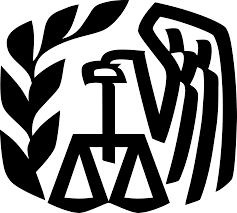Probate Law
In this post, we’ll discuss the probate system and the situations in which it can be avoided.
When a loved one passes away, you want to make sure their wishes are respected and that the intentions of their estate are carried out. Often though, these desires are difficult to deal with as you navigate through the court system.
What is probate?
Probate is the legal process where the estate of a decedent is transferred to heirs through a probate court.
If the deceased has a will, the probate process begins when the executor nominated by the decedent in the will, presents the will for probate in a courthouse in the county where the decedent lived or owned property.
If there is no will, someone must ask the court to appoint an administrator of the estate, usually the spouse or an adult child of the decedent.
The purpose of probate is to prevent fraud after someone’s death.
Probate is also a public notice of death and lets creditors file claims against an estate. After any creditors are paid, the remainder of the estate goes to the beneficiaries.
If there is not a will, the court will decide how to distribute the property. This is why it is so important to have a will.
Probate laws will vary by state and not all assets or estates need to go through probate. Some assets can transfer automatically at the death of an owner with no probate required.
Why avoid probate?
 If the purpose of probate is to avoid fraud, then why would you avoid probate?
If the purpose of probate is to avoid fraud, then why would you avoid probate?
One reason to avoid probate is because it is a long process that can take six months to a year or more to settle with the state.
Another common reason is that people wish to avoid legal fees, which can cost thousands of dollars or to avoid public scrutiny because probate proceedings are open to the public.
How to avoid probate
Some assets can automatically escape probate and be paid directly to the beneficiary you have named. These include insurance policies, IRAs, retirement plans and some bank accounts.
Another way to avoid probate is if a couple has jointly owned property with “rights of survivorship”. Jointly owned assets will transfer to the surviving owner.
You can also avoid probate by having assets passed directly to your heirs by putting them in a revocable living trust.
The best solution is to speak with a trusted attorney who can help you craft a solution for your personal situation.
* Advertising Material: To the extent that the information in this post is interpreted as attorney advertising in accordance with the Illinois Rules of Professional Conduct or within the meaning of state bar rules from all other localities, this statement is made pursuant to those rules.
Specialties: Specialization claims are prohibited by Illinois Supreme Court Rules and we do not claim to be specialists. The content of this e-mail is organized and presented for the sole purpose of general information. None of the included content should be construed as legal advice. Viewing this e-mail or e-mailing the account holder does not create an attorney-client relationship. NOTICE: This page may be considered advertising material.
The Law Offices of Lora Fausett P.C. provides estate law attorney services including estate planning, probate, living will and living trust services.


 The plan to stop collecting and reporting civil judgments and tax lien information currently on public records will affect millions of consumers.
The plan to stop collecting and reporting civil judgments and tax lien information currently on public records will affect millions of consumers. It is feared by many within the industry that these changes may make risky buyers appear more creditworthy than they actually are.
It is feared by many within the industry that these changes may make risky buyers appear more creditworthy than they actually are.

 In recent years there has been a growing trend of W-2 “
In recent years there has been a growing trend of W-2 “ IRS Issues Alert
IRS Issues Alert